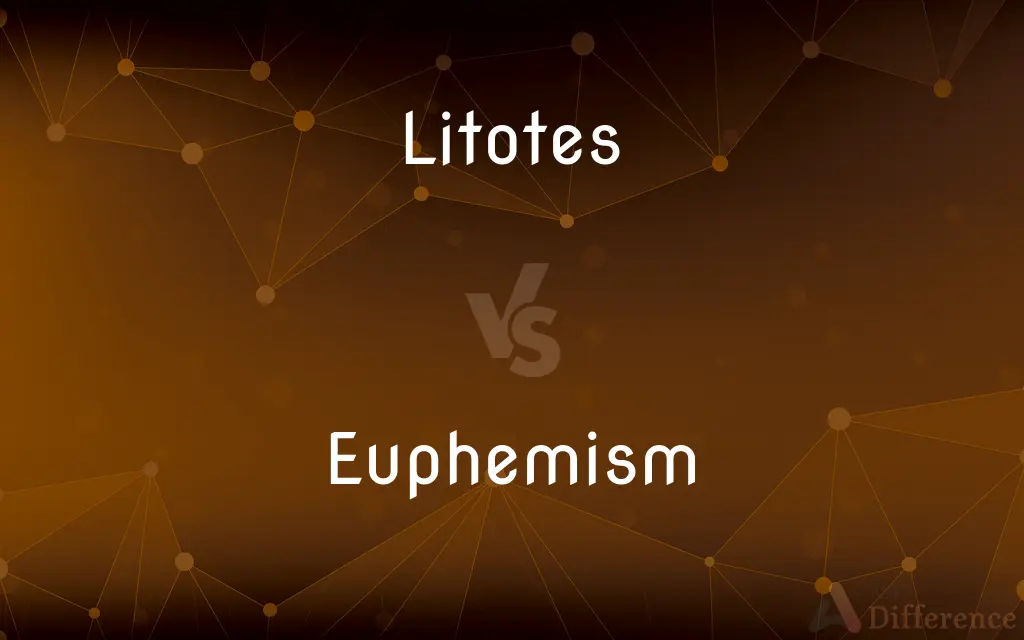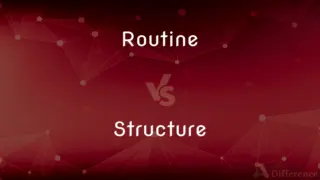Litotes vs. Euphemism — What's the Difference?

Difference Between Litotes and Euphemism
ADVERTISEMENT
Compare with Definitions
Litotes
In rhetoric, litotes (, US: or ; also known classically as antenantiosis or moderatour) is a figure of speech and form of verbal irony in which understatement is used to emphasize a point by stating a negative to further affirm a positive, often incorporating double negatives for effect. Litotes is a form of understatement, more specifically meiosis, and is always deliberate with the intention of emphasis.
Euphemism
Euphemism () is an innocuous word or expression used in place of one that may be found offensive or suggest something unpleasant. Some euphemisms are intended to amuse, while others use bland, inoffensive terms for concepts that the user wishes to downplay.
Litotes
A figure of speech consisting of an understatement in which an affirmative is expressed by negating its opposite, as in This is no small problem.
Euphemism
A mild, indirect, or vague term for one that is considered harsh, blunt, or offensive
"Euphemisms such as 'slumber room' ... abound in the funeral business" (Jessica Mitford).
Litotes
(rhetoric) An ironic figure of speech whereby something is stated by denying its opposite, particularly the negation of a negative quality to say something positive.
ADVERTISEMENT
Euphemism
The use of such terms
"Euphemism is common in hospital and medical facilities where bodily functions need to be discussed" (Diane F. Halpern).
Litotes
A diminution or softening of statement for the sake of avoiding censure or increasing the effect by contrast with the moderation shown in the form of expression; a form of understatement; as, " a citizen of no mean city," that is, of an illustrious city; or, "not bad", meaning "good".
Euphemism
(uncountable) The use of a word or phrase to replace another with one that is considered less offensive, blunt or vulgar than the word or phrase which it replaces.
Litotes
Understatement for rhetorical effect (especially when expressing an affirmative by negating its contrary);
Saying `I was not a little upset' when you mean `I was very upset' is an example of litotes
Euphemism
(countable) A word or phrase that is used to replace another in this way.
Euphemism
A figure in which a harsh or indelicate word or expression is softened; a way of describing an offensive thing by an inoffensive expression; a mild name for something disagreeable.
Euphemism
An inoffensive expression that is substituted for one that is considered offensive
Share Your Discovery

Previous Comparison
Routine vs. Structure
Next Comparison
Enkindle vs. Kindle













































